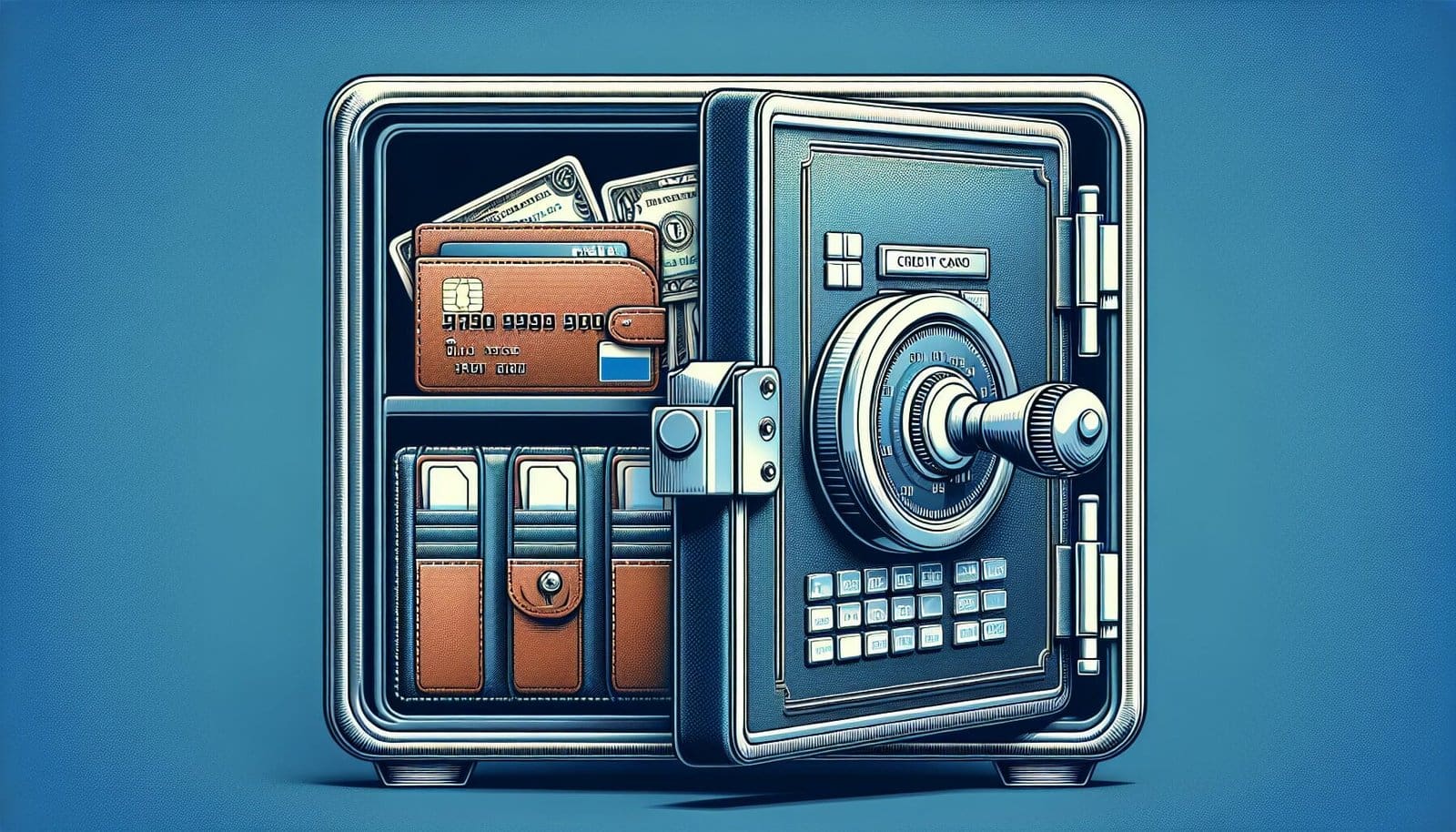Credit cards can be a powerful financial tool, providing convenience and flexibility when it comes to making purchases. However, for first-time users, navigating the world of credit cards can be a daunting task fraught with potential pitfalls. In this article, we highlight some valuable tips to help first-timers avoid costly missteps and make the most of their credit cards. From understanding interest rates and avoiding unnecessary fees to creating a budget and monitoring spending habits, we aim to equip new credit card users with the knowledge and confidence needed to use their cards wisely. So, if you're a first-time credit card user looking to make informed decisions and avoid common pitfalls, read on for some valuable insights to help you on your financial journey.

How To Avoid Costly Missteps As A First-Time Credit Card User
Understanding Credit Cards
What is a credit card?
A credit card is a financial tool that allows individuals to make purchases and borrow money up to a certain credit limit. It functions as a form of payment, allowing cardholders to access funds that are not immediately available in their bank account.
How do credit cards work?
Credit cards work by granting cardholders access to a line of credit that they can use to make purchases. When a purchase is made using a credit card, the cardholder is essentially borrowing money from the credit card issuer. The cardholder is then required to repay the borrowed amount along with any interest or fees that may apply. If the cardholder pays off the full balance within the grace period, no interest will be charged.
Why is it important to understand credit cards?
Understanding credit cards is crucial because they can have a significant impact on a person's financial well-being. Misusing credit cards or not fully understanding their terms and conditions can lead to debt, high interest charges, and a negative impact on credit scores. By understanding how credit cards work and using them responsibly, individuals can build their credit, take advantage of rewards and benefits, and maintain good financial health.
Choosing the Right Credit Card
Research different types of credit cards
Before choosing a credit card, it is important to research and compare different types of cards available in the market. There are various types of credit cards, including rewards cards, balance transfer cards, secured cards, and student cards. Each type has its own features and benefits, so it is essential to identify the card that best suits your financial needs and goals.
Consider your financial goals and needs
When choosing a credit card, it is essential to consider your financial goals and needs. For example, if you travel frequently, a card that offers travel rewards and miles may be beneficial. If you are looking to consolidate existing high-interest debt, a balance transfer card with a low introductory APR might be a good option. By aligning your financial goals with the features offered by different credit cards, you can make an informed decision.
Compare interest rates and fees
Interest rates and fees can vary significantly among different credit cards, so it is crucial to compare these factors before making a decision. Look for cards with low annual percentage rates (APRs) to minimize the interest you'll pay if you carry a balance. Additionally, pay attention to fees such as annual fees, balance transfer fees, and foreign transaction fees. Understanding the costs associated with a credit card can help you avoid unnecessary charges.
Understand credit card rewards and benefits
Credit card rewards and benefits can be enticing, but it is important to fully understand how they work before selecting a card based on these features. Some credit cards offer cashback rewards, while others provide travel perks or discounts on specific purchases. Consider your spending habits and determine which rewards and benefits align with your needs and preferences. Additionally, be aware of any limitations or restrictions that may apply to these rewards.
Essential Tips For First-Time Credit Card Users To Avoid Costly Mistakes
Establishing Credit and Building a Good Credit Score
The importance of building credit
Establishing a good credit history and building a solid credit score is vital for various financial goals. Whether you plan to buy a home, apply for a car loan, or even rent an apartment, your creditworthiness will be evaluated by lenders and landlords. By responsibly using credit cards and consistently making on-time payments, you can demonstrate your ability to manage credit and improve your creditworthiness.
How to establish credit as a first-time user
If you are a first-time credit card user, establishing credit may seem challenging, but it is achievable with the right strategies. Consider starting with a secured credit card, which requires a cash deposit as collateral and can help build credit history. Another option is to become an authorized user on someone else's credit card, allowing their responsible credit behavior to positively impact your credit history.
Monitoring your credit score
Regularly monitoring your credit score is essential to understanding your creditworthiness and identifying any potential errors or discrepancies. Many credit card issuers provide free access to credit scores, or you can use reputable credit monitoring services. Monitoring your credit score allows you to track your progress in building good credit and address any issues that may arise.
Tips for improving your credit score
Improving your credit score requires commitment and responsible credit management. Some tips to improve your credit score include paying your bills on time, keeping credit card balances low, and avoiding opening multiple credit accounts within a short period. Additionally, regularly reviewing your credit reports for accuracy and addressing any discrepancies can help improve your credit score over time.
Creating a Budget and Tracking your Expenses
Set a monthly budget
Creating a budget is an essential step in managing your finances effectively. Start by determining your monthly income and fixed expenses, such as rent or mortgage payments, utility bills, and loan payments. Then allocate a specific amount for variable expenses like groceries, dining out, and entertainment. Setting a budget helps you understand your spending limits and ensures you have enough funds to meet your financial goals.
Track your spending
Tracking your expenses is crucial for gaining insight into your spending habits and identifying areas where you can cut back or make adjustments. Use budgeting apps or spreadsheets to categorize and monitor your expenses. This way, you can see where your money is going and make informed decisions about how to allocate your funds more efficiently.
Avoid overspending
Credit cards can be tempting, especially when they provide access to seemingly limitless funds. However, it is important to resist the urge to overspend. Stick to your budget and consider the long-term financial implications of your purchases. Before making a credit card purchase, ask yourself if it is a necessity or if it aligns with your financial goals. This practice will help you avoid unnecessary debt and maintain good financial health.
Review and adjust your budget regularly
Financial situations and priorities can change over time, so it is essential to review and adjust your budget regularly. Life events such as job changes, moving, or starting a family may require you to reallocate funds or create new financial goals. By regularly reviewing your budget, you can ensure that it remains aligned with your current needs and adjust your spending habits accordingly.

Smart Strategies For First-Time Credit Card Users: Preventing Costly Missteps
Understanding Credit Card Terms and Conditions
Read the fine print
Before applying for a credit card, it is crucial to thoroughly read and understand the terms and conditions provided by the card issuer. The fine print includes important details about interest rates, fees, grace periods, and other key information. By reading the fine print, you can make an informed decision and avoid any surprises or misunderstandings in the future.
Know the interest rates and fees
Understanding the interest rates and fees associated with a credit card is essential to managing your finances effectively. Be aware of the annual percentage rate (APR) for purchases, balance transfers, and cash advances, as well as any penalty fees for late payments or exceeding your credit limit. This knowledge will help you calculate the cost of borrowing and make informed decisions about credit card usage.
Understand grace periods
Grace periods refer to the time between the end of a billing cycle and the due date of the payment. During the grace period, no interest is charged on new purchases if the full balance is paid by the due date. It is important to understand the length of the grace period provided by your credit card issuer and take advantage of it by paying your balance in full each month to avoid accruing unnecessary interest charges.
Be aware of penalties and late payment consequences
Late payments can have a significant negative impact on your credit score and result in penalty fees. Familiarize yourself with the consequences of late payments, including increased interest rates, potential loss of promotional interest rates or rewards, and damage to your credit history. By paying your bills on time, you can avoid these penalties, maintain a positive credit history, and protect your financial reputation.
Paying Your Bills on Time
Importance of paying on time
Paying your credit card bills on time is crucial for several reasons. Timely payments contribute to a positive payment history, which is a significant factor in calculating your credit score. Additionally, paying on time helps you avoid late payment penalties and interest charges. By consistently making on-time payments, you demonstrate your financial responsibility and increase your chances of qualifying for better credit card offers and favorable loan terms in the future.
Setting up automatic payments
To ensure you never miss a payment deadline, consider setting up automatic payments for your credit card bills. Most credit card issuers provide this option, allowing you to authorize them to deduct the minimum payment or full balance from your bank account on a specified date each month. Automatic payments provide convenience, peace of mind, and ensure that your payments are always made on time.
Keeping track of due dates
Apart from automatic payments, it is essential to keep track of your credit card due dates manually. Use a calendar or set reminders on your phone to stay organized and avoid missing any payment deadlines. By staying on top of due dates, you can plan your monthly budget effectively and avoid late payments that may negatively impact your credit score.
What to do if you can't make payment on time
In case you are unable to make a payment on time, it is crucial to take immediate action to minimize the negative consequences. Contact your credit card issuer and explain your situation. They may be able to offer temporary solutions such as adjusting the payment due date or setting up a payment plan. Avoiding communication or ignoring the issue can lead to further penalties and damage to your credit score.
Tips for First-Time Credit Card Users: Avoiding Costly Missteps
Avoiding unnecessary debt
Only charge what you can afford
One of the most important principles of responsible credit card usage is to only charge what you can afford to pay off in full each month. Avoid the temptation to overspend or rely on credit card debt to cover expenses beyond your means. While credit cards provide the flexibility to make purchases, it is crucial to ensure that the charges can be comfortably repaid to avoid accruing unnecessary debt.
Avoid cash advances
Cash advances provided by credit cards may seem convenient, but they often come with high interest rates and fees. It is best to avoid cash advances whenever possible and use alternative sources of funds for cash needs. Cash advances can quickly accumulate interest and lead to a cycle of debt, making it challenging to pay off the balance.
Resist impulse purchases
Credit cards can make it easy to give in to impulse purchases, but it is important to resist the temptation. Before making a purchase, take a moment to evaluate if it aligns with your budget and financial goals. Consider implementing a waiting period for significant purchases, allowing yourself time to reflect on whether the purchase is necessary and fits within your overall financial plan.
Pay off your balance in full
Paying off your credit card balance in full each month is the best way to avoid unnecessary debt and interest charges. By doing so, you can effectively use credit cards to build a positive credit history without incurring additional costs. If you cannot pay off the full balance, aim to pay more than the minimum payment to accelerate the payoff process and minimize interest charges.
Keeping Your Credit Card Information Secure
Protect your card and account details
It is crucial to keep your credit card and account details secure to prevent unauthorized use or fraud. Treat your credit card like a valuable possession and avoid sharing card information unless necessary. Keep your card in a safe place, shred financial documents containing sensitive information, and regularly update your PIN and passwords for online accounts.
Be cautious with online transactions
When making online transactions using your credit card, it is important to exercise caution. Only share your card details on secure websites, indicated by the padlock symbol and “https” in the URL. Avoid making transactions on public Wi-Fi networks, as these networks may not be secure. Regularly monitor your online statements for any unauthorized charges and report suspicious activity immediately.
Regularly monitor your card activity
Frequently monitoring your credit card activity is crucial for identifying any unauthorized charges or suspicious transactions. Review your monthly statements carefully and check for any discrepancies. Many credit card issuers also provide online account access, allowing you to monitor your card activity in real-time. By staying vigilant and promptly reporting any fraudulent activity, you can minimize the financial and emotional impact of identity theft or fraud.
What to do in case of fraud or identity theft
In case you suspect fraud or identity theft related to your credit card, it is important to take immediate action. Contact your credit card issuer to report the fraudulent activity, and they can guide you on the necessary steps to mitigate the impact. Additionally, consider placing a fraud alert or credit freeze with the major credit bureaus to prevent further fraudulent accounts from being opened in your name.
Utilizing Credit Card Benefits
Understanding reward programs
Credit card reward programs offer various incentives to cardholders based on their spending. Understanding how these programs work is essential to maximize the benefits. Some cards offer cashback rewards, where a percentage of the amount spent is credited back to the cardholder. Others provide points or miles that can be redeemed for travel, merchandise, or other rewards. Familiarize yourself with the specific terms and conditions of your credit card's reward program to make the most of these benefits.
Cashback and discounts
Cashback rewards and discounts are common features offered by many credit cards. Cashback rewards provide a certain percentage of the purchase amount back to the cardholder, often as a statement credit or cash deposit. Take advantage of these rewards by using your credit card for everyday purchases and paying off the balance in full each month. Additionally, some credit cards offer discounts or special offers at specific retailers or for certain categories of spending. Take the time to explore the benefits offered by your credit card to save money on your purchases.
Travel rewards and miles
Travel rewards and miles are popular features among credit cards, particularly those affiliated with airlines or hotel chains. These rewards allow cardholders to earn points or miles for their spending, which can later be redeemed for flights, hotel stays, or other travel-related expenses. If you are a frequent traveler, a credit card with travel rewards and miles can provide significant cost savings and additional benefits such as airport lounge access or complimentary travel insurance.
Insurance and purchase protection benefits
Some credit cards offer insurance and purchase protection benefits, providing an added layer of security for cardholders. These benefits may include travel insurance, rental car insurance, extended warranty protection, or purchase price protection. Familiarize yourself with the specific benefits offered by your credit card and take advantage of them when applicable. These benefits can provide peace of mind and savings on various purchases and travel expenses.
Seeking Professional Help
Consulting a financial advisor
If you are unsure about how to manage credit cards effectively or have complex financial needs, consider consulting a financial advisor. A financial advisor can provide personalized guidance based on your unique financial situation and goals. They can help you create a comprehensive financial plan, including credit card management, budgeting, and debt repayment strategies.
Speaking with your bank
Banks often have dedicated teams or financial advisors who can provide guidance on credit card usage and financial management. Schedule an appointment or reach out to your bank's customer service hotline to discuss any specific concerns or questions you may have. They can explain the terms and features of different credit cards, as well as provide general advice on responsible credit card usage.
Using credit counseling services
Credit counseling services are available for individuals seeking professional assistance with managing credit card debt or improving their financial situation. These services provide guidance and education on budgeting, debt management, and financial planning. Credit counselors can help you create a debt repayment plan, negotiate with creditors, and provide ongoing support to help you achieve your financial goals.
Understanding debt management options
If you find yourself struggling with credit card debt, understanding your debt management options is essential. Debt consolidation, balance transfer, or even debt settlement may be possible strategies to help you regain control of your finances. However, it is important to carefully evaluate these options and seek professional guidance if needed. Debt management can be complex, and making informed decisions is crucial to avoid further financial hardship.
Tips for First-Time Credit Card Users: Avoiding Costly Missteps





